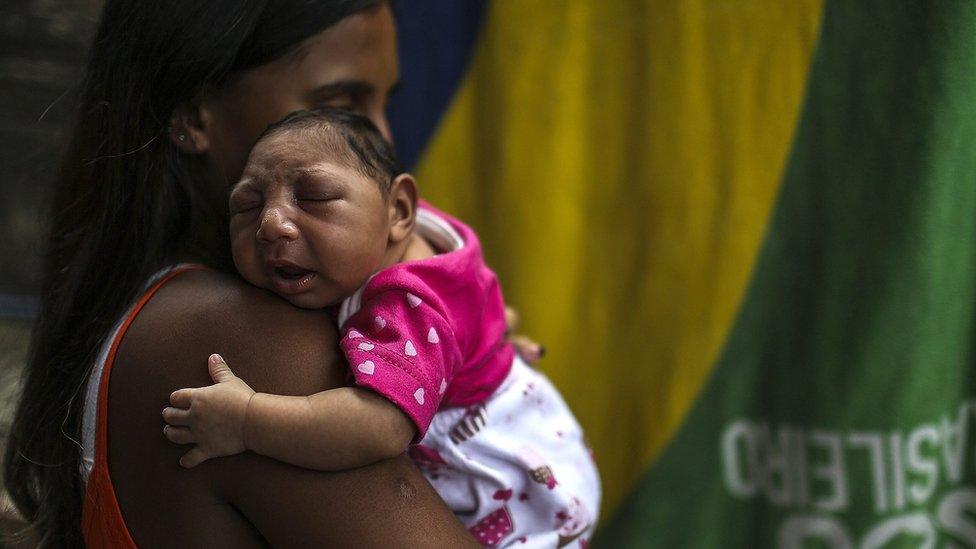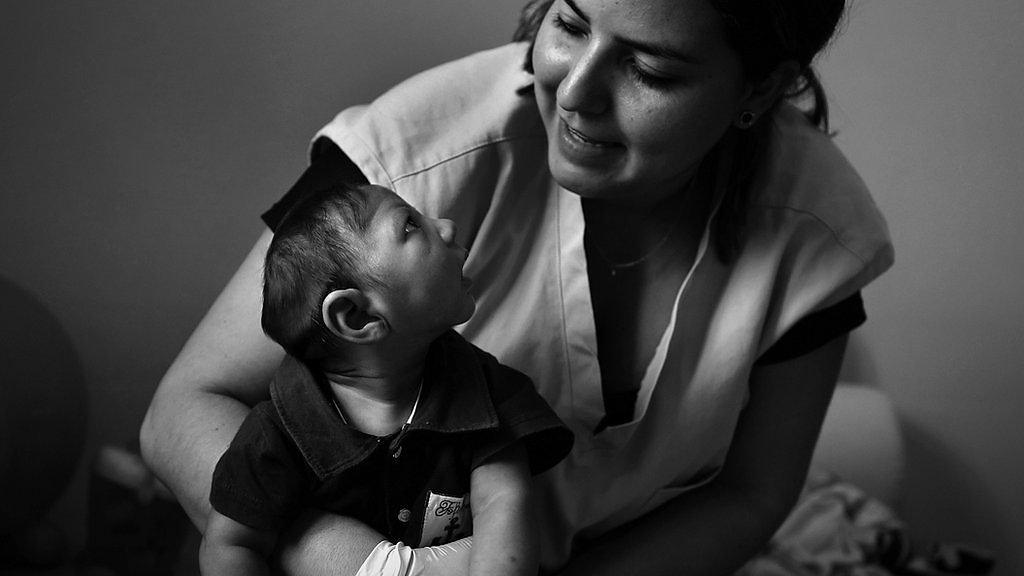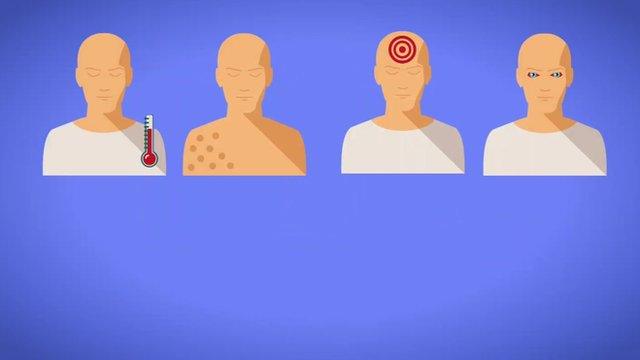Zika virus: Brazil says emergency is over
- Published

The virus has been linked to microcephaly, or abnormally small heads
Brazil has declared an end to a national emergency over the Zika virus after a sharp decrease in cases.
The number of cases dropped 95% between January and April, compared to the same period a year ago, officials said.
The virus has been linked to the birth of babies with abnormally small heads. The threat was at its peak as Brazil prepared to host the 2016 Olympics.
The World Health Organisation lifted its own international emergency in November last year.
The Zika virus has been linked to severe birth defects in almost 30 countries.
Professor David Heymann was the chairman of the World Health Organization's emergency committee for the Zika outbreak.
"What appears to have happened is there is now herd immunity in the population because so many people were infected.
"Now the virus can't find enough people who don't have protection, to circulate (in)."
However, he said that herd immunity might not last very long.
"As immunity decreases, because new populations come in that haven't been exposed to Zika, (and) as they get older there may be epidemics in the future."
Brazil had declared a national emergency in November 2015. The threat led to a campaign to eradicate the mosquitoes which carry the virus.
There were 7,911 cases of Zika from January to April this year, compared to 170,535 cases reported in the same time last year, the health ministry said in a statement (in Portuguese)., external
No deaths related to the virus have been reported this year, it added, saying that eight people died last year.

The Zika virus

Although the virus is mostly spread by mosquitoes, it can also be sexually transmitted
Few people die from Zika and only one in five people infected is thought to develop symptoms. These can include fever, a rash and joint pain
It was first identified in monkeys in Uganda in 1947. The first human case was detected in Nigeria in 1954 and there have been further outbreaks in Africa, South East Asia and the Pacific Islands
But in May 2015 it was reported in Brazil and spread rapidly
As there is no treatment, the only option is to reduce the risk of being bitten
- Published30 April 2017

- Published1 February 2017

- Published3 February 2016

- Published27 January 2016
